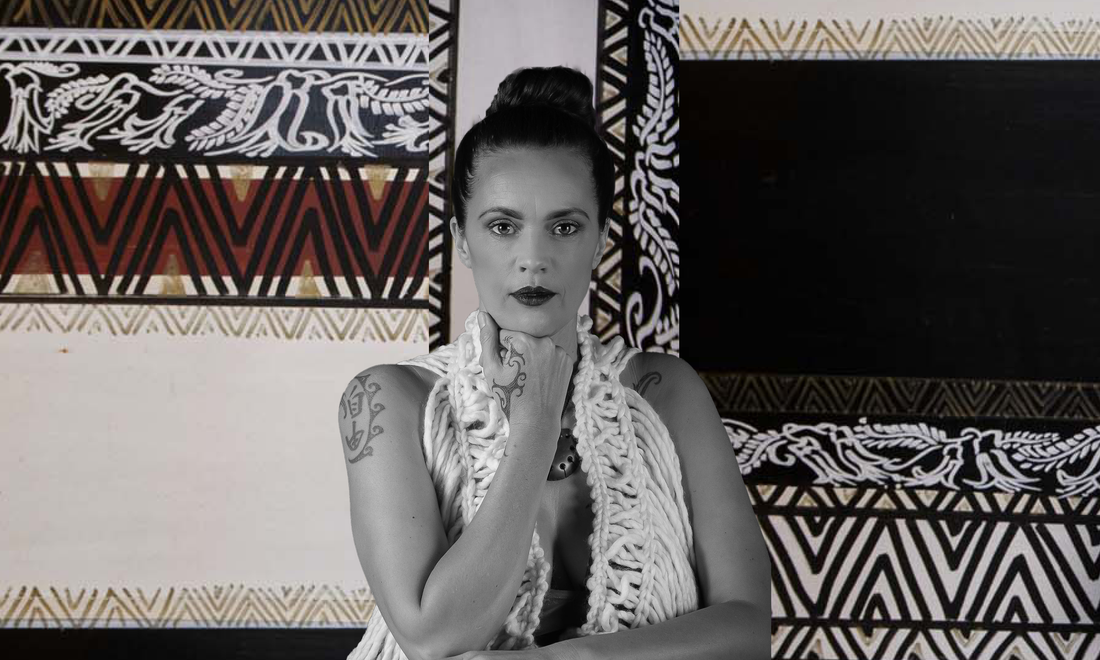
An interview with 'Hinekura' Director Becs Arahanga
Becs Arahanga (Ngai Tahu, Ngati Raukawa) is a writer, director and producer. Her short film, Hinekura, is a pre-colonial coming-of-age story that explores first menstrual cycles and the practices around this. Hinekura centres the story of Hine, a young woman experiencing her ikura for the first time, and showcases her journey as she steps into her role as protector of her iwi.
Becs was “always interested in our menstrual practices, or lack thereof, from a young age.” She notes that Māori pre-colonial menstrual practices “shared a similar practice with some American Indian tribes”, a fact she found “beautiful and interesting.” Like pre-colonial practices in Aotearoa, Native American cultures traditionally honoured menstruation, seeing those who were menstruating as spiritual leaders and as having a powerful connection to nature. Some traditions, such as those of the Ojibwe tribe, would include spiritual retreats and ceremonies, where first-time menstruators learnt about responsibility and importance from community elders, as well as having time to reflect and connect with nature. The inspiration for Hinekura came from Becs “wanting to explore that further”, and the character of Hine “just kind of revealed herself”.

When asked about her interest in traditional ikura practices, Becs tells us that “we knew the importance of these practices, and they kept us in harmony with ourselves, the natural environment as well as the spiritual realms. The closer we can get back to that, the better us and our planet will be.” She’d like to see us “bring back the ceremony and honour” of ikura practices, reflecting that this “could be a special kai with all the whānau”, rather than needing to be anything massive.
The connection to nature and to the spiritual realm is central in the film. The setting is beautiful and lush, with the ngahere and awa featured predominately, and sounds of water and tui song add depths and richness to the vivid landscapes. “Wairua very much guided this entire film,” Becs says. “On a physical level we made a beautiful film, on a spiritual level we were reinstating our divine feminine back into the whenua with powerful karakia and ceremony.”
To research Hinekura, Becs conducted “lots of interviews with people who still have our stories, and know our tikanga.” Whilst discussing menstruation can be seen as taboo or shameful in some cultures and settings, this wasn’t Becs’ experience at all. When asked if she faced any resistance in the making of, or production of, Hinekura, Becs replies, “Not at all. In fact, it immediately opened up conversations and memories from people, including past traumas and lost knowledge, as well as funny first time period stories.”

The character of Hine is central to the film but her acceptance of her ikura and her role in her iwi doesn’t necessarily come easily to her. There is a point in the film where Hine shares that she finds the wānanga boring, and another where she is challenged to step up as protector. “We are all on a journey and it is never straightforward,” Becs says of Hine’s challenges. “Sometimes, often times, we need challenges to help us step into who we are, our purpose and our power.” Whilst Hinekura focusses on Hine and her journey into her womanhood, Becs includes a number of characters – namely Tama and Hine’s Dad – who bring a unique perspective to Hine’s story and tell us more about the collective understandings of ikura in pre-colonial Aotearoa. Both these men celebrate and support Hine, with Tama helping guide Hine as she struggles to step into her role. “Both Tama and Hine’s dad were important characters for me,” Becs says. “Often Māori men are not portrayed properly or positively in the media. But our men are good, they hold space for us, they are part of our good stories too. I wanted Tama to be that for Hine. Comfortable and solid within the space of her first ikura.” The response of these characters to Hine’s first ikura is refreshing to watch, highlighting how the shame and embarrassment that often surrounds narratives of menstruation today was not present in pre-colonial times. For teenagers watching the film, Becs hopes that they will learn to “reject the narrative that we've been fed, that it’s just something we must endure. Our bleeds are sacred and meaningful. Reclaim the power that comes with these cycles.” The characters of Tama and Hine’s Dad show us how that power and sacredness was celebrated and revered in pre-colonial Aotearoa, and the journey of Hine also highlights this as she steps into her power and her role within her iwi.
Hinekura “truly opened up old indigenous wisdom from other cultures,” Becs says. The short film was shown at film festivals around the world and the reception of the film has been amazing. “People in the Q&A would tell me stories from their Grandmothers. I loved the journey with her.” Yet it was the first screening with the cast and crew that stands out most in Becs’ memory. “I’ve loved all the screenings, but probably the first with our cast and crew. It was (ooh it’s giving me goosebumps thinking about it) just so special, beautiful and powerful. Everyone involved was just so meant to be there and the experience was life changing.”
So what’s next for Becs Arahanga? Whilst she doesn’t currently have any plans to tell more stories around menstruation (though she notes that these are always needed, that “we need all the voices who feel drawn to speak, telling their stories”), she is currently working on developing what is essentially a “landrights back comedy” titled Year of the Fox, “about a wahine Māori who needs to return from the city and move home to her Papa kainga and succeed to her Dad’s land, except her ex-partner follows her back as a figmented version of her imagination. It’s a comedy drama that tackles some of the issues faced from generations of colonisation.”

